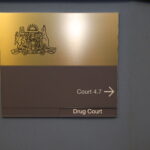The Involuntary Drug and Alcohol Treatment Program in NSW

Dealing with a loved one who is dependent on alcohol or other drugs, and suffering from associated symptoms, can be a difficult and heartbreaking experience.
And while it is always before those those who are severely dependent on substances to seek help on their own, there is an involuntary program which may be used in severe cases when all else seems to fail.
Here’s an outline of the Involuntary Drug and Alcohol Treatment Program, or ‘IDAT Program’, in New South Wales, including the criteria that must apply for its use and ways to appeal against decisions made under the scheme.
The Involuntary Drug and Alcohol Treatment Program
The Involuntary Drug and Alcohol Treatment Program is an option of last resort for those in New South Wales who are dealing with severe substance dependence.
The laws regarding involuntary treatment are found under the Drug and Alcohol Treatment Act 2007 (NSW) (‘the Act’) and allow for the involuntary detention, assessment and treatment of a person with a severe substance dependence disorder for up to 28 days.
The IDAT Program provides medically supervised withdrawal management and post-withdrawal assessment and treatment in a specialised inpatient unit.
There are 12 IDAT beds across two hospital-based treatment centres: one at Royal North Shore Hospital campus with four beds, and Bloomfield Hospital campus in Orange with eight beds.
Eligibility for IDAT
Involuntary treatment will occur if an accredited medical practitioner under the Act is of the opinion that the issuing of a ‘dependency certificate’ is necessary. This certificate can only be issued to adults.
Section 9 of the Act states that a dependency certificate may be issued if an accredited medical practitioner is satisfied that:
- the person has a severe substance dependence, and
- care, treatment or control of the person is necessary to protect the person from serious harm, and
- the person is likely to benefit from treatment for his or her substance dependence but has refused treatment, and
- no other appropriate and less restrictive means for dealing with the person are reasonably available.
The accredited medical practitioner may have regard to any serious harm that may occur to children in the care of the person, or dependants of the person, as a result of involuntary treatment.
Section 10 of the Act provides that a Magistrate or authorised officer may make an order that a person be involuntary detained in order to be assessed for suitability for involuntary treatment by an accredited medical practitioner.
The order may be made only if the Magistrate or authorised officer is satisfied, by evidence on oath, that:
- the person is likely to have a severe substance dependence, and
- the person is likely to be in need of protection from serious harm or others are likely to be in need of protection from serious physical harm, and
- because of physical inaccessibility, the person could not, but for the making of an order under this section, be assessed, and
- the person is likely to benefit from the treatment.
Length of involuntary treatment
Section 14 of the Act makes clear that if an accredited medical practitioner issues a dependency certificate in relation to a person being assessed:
- the person must not be detained for treatment for more than 28 days after the day the certificate is issued, and
- an accredited medical practitioner must, as soon as practicable after the certificate is issued, bring the person before a Magistrate for a review of the issuing of the certificate.
Appealing against involuntary treatment
Any dependency certificate issued for involuntary treatment may be reviewed by a Magistrate to determine if the certificate was suitably issued.
Section 34 of the Act requires a Magistrate to consider the following in determining suitability:
- the reports and recommendations of any accredited medical practitioner who has examined the person,
- any proposed further treatment for the person and the likelihood the treatment will be of benefit to the person,
- the views of the person (if any),
- any cultural factors relating to the person that may be relevant to the determination,
- any other relevant information given to the Magistrate.
If the Magistrate is not satisfied, on the balance of probabilities, that the person meets the criteria for detention, the Magistrate must order that the person be discharged from the treatment centre and the dependency certificate is of no further effect.
Going to court?
If you or a loved-one is going to court over drug charges, call Sydney Criminal Lawyers® anytime on (02) 9261 8881 to arrange a free first conference with an experienced lawyer, who will take the time to advise you of your options, including drug treatment programs and diversionary schemes that may be available, as well as the best path forward in terms of the case.
An experienced drug defence lawyer will not only fight for the best possible outcome in legal terms, but also guide and support you through the road to recovery and towards a bright future.






